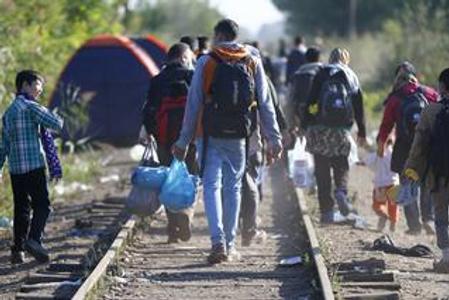”This number may be reduced in the case of participation by [non-EU countries] Norway and Switzerland,” Králik told the TASR newswire on September 23. “Moreover, Ireland stated that it will voluntarily accept 4,000 asylum seekers and Denmark 1,000 refugees. Great Britain will accept Syrian refugees directly from refugee camps in the Middle East,” the spokesman informed.
Four criteria were taken into account when calculating the distribution figures, including population size, the economic strength of the country (GDP), the number of asylum applications in the past five years and the unemployment rate. If necessary, a further 54,000 refugees will be redistributed. This would result in 656 people being allocated to Slovakia, although the number could be even smaller.
The EU is ready to support this relocation scheme with €780 million. States in receipt of asylum seekers should be given €6,000 per refugee. Each member country will have the right to reject an individual asylum seeker if they pose a threat to national security. The asylum seekers will be obliged to remain in the host country to which they are assigned and cannot be moved to another country without their consent. If they leave the country, they will be transferred back. They will also face the risk of losing their potected legal status, according to the rules. Their original host country – Italy or Greece – can be identified by the obligatory taking of fingerprints.
Exemptions will only apply to refugees who come from countries where the rate at which asylum is granted to their citizens exceeds 75 percent. “This currently means citizens of Syria, Eritrea and Iraq.” Králik explained. “It will concern refugees for whom there is a clear and urgent need for international protection.”
Slovakia will not be obliged to accept economic migrants; and every state will be allowed to refuse a specific asylum seeker if he poses a security threat, according to a document on quota, cited by the SITA newswire. This should prevent economic migrants from unreasonably prolonging their stay within the EU and enable their return to their country of origin immediately.

A member state may, in exceptional circumstances, within three months of the adoption of this measure, report to the EU Council and European Commission that it is unable to participate in the relocation of refugees, up to a maximum level of 30 percent of its previously assigned number. “It must provide legitimate reasons that are consistent with the fundamental values of the EU. This could include a sudden influx of refugees, which would create enormous pressure on the asylum system of the country,” the spokesman said, as quoted by TASR.
The interior ministers adopted the EC’s proposal on the relocation of 120,000 people clearly in need international protection by a majority vote on September 22. The quotas were opposed by Slovakia, the Czech Republic, Hungary and Romania. Finland abstained. Slovak Prime Minister Robert Fico said that his country will not implement the decision on mandatory quotas into its legislation and Slovak government will file a lawsuit against the European Union at the European Court of Justice (ECJ).



 Prime Minister Robert Fico (source: Sme)
Prime Minister Robert Fico (source: Sme)